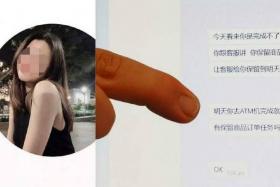Students can work and study at the same time
SIT and UniSIM launch SkillsFuture Work-Study Degree Programmes
Singapore's thrust on combining classroom learning with workplace experience has graduated to the next level.
This year, two universities - Singapore Institute of Technology (SIT) and SIM University (UniSIM) - are launching programmes in which students can take on jobs and receive sponsorship to study for their degrees at the same time.
SIT will offer the SkillsFuture Work-Study Degree Programmes in information security, software engineering, hospitality business, electrical power engineering and civil engineering, while UniSIM's programmes will be in finance and business analytics.
The 12 partners, which comprise companies and government agencies, will not just offer internships but co-develop the degree programmes.
The programmes are targeted at students who are heading to university and those currently enrolled. Working adults may also apply.
There will be about 65 places offered this year, but the number of places and programmes is expected to expand over the years.
Students in the programmes can alternate between days or semesters of work and study.
Under the SkillsFuture initiative launched in 2015, all universities, polytechnics and the Institute of Technical Education launched programmes combining work and study to ensure that their students acquire job-relevant skills and knowledge.
It ensures that the skills and knowledge you acquire are directlySingapore Institute of Technology president Tan Thiam Soon
relevant to the job and industry you are in.
At the universities, these range from six- to 18-month internships, which the National University of Singapore is introducing in three computing programmes this year.
Announcing the SkillsFuture Work-Study Degree Programme at SIT's graduation ceremony yesterday, Minister for Education (Higher Education and Skills) Ong Ye Kung said such applied pathways are needed to support the increasing proportion of degree holders here.
If, as expected, 40 per cent of each cohort takes the university route by 2020, employers would not hire people simply because they have degrees.
"In a more competitive climate, they also want to be assured that their fresh hire is a young talent who can integrate well into their organisation, enjoys the nature of work and is passionate or deeply interested in the industry they are in," he said.
Internships and attachments open such doors.
SIT president Tan Thiam Soon said studying in the real-world setting was powerful.
"It ensures that the skills and knowledge you acquire are directly relevant to the job and industry you are in," he said.
UniSIM president Cheong Hee Kiat said his university has already launched the SkillsFuture Work-Study Degree programme in finance with Standard Chartered.
ATTACHMENTS
Six students have been attached to the bank since last month.
"Employers stand to benefit by having an early opportunity to recruit and groom talent," he added.
Ms Charlotte Thng, head of human resources at Standard Chartered here, said the students work three days and attend classes two days a week.
"We are also actively engaging with them to identify opportunities to help them bring real-life cases and issues from work to the classroom," she added.
Get The New Paper on your phone with the free TNP app. Download from the Apple App Store or Google Play Store now


